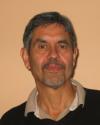English/Clit 510 Syllabus
Professor: Henry Staten
The study of literature and culture today is vastly different from what it was forty years ago. In the 70s and 80s a revolution in thought took place, beginning with poststructuralism and deconstruction and followed by new historicism and a variety of other new approaches. Contemporary ways of approaching literature and culture are rooted the preceding wave of postructucturalism and deconstruction, and are only superficially understood without an understanding of that preceding wave. This course is intended to provide the necessary background. We will begin with a quick survey of the metaphysical and literary critical ideas that the structuralists were trying to “deconstruct,” ideas that came to be lumped together as “humanism” and “essentialism.” Everybody today knows (whether implicitly or explicitly) that essentialism is wrong, but unless you know exactly what essentialism is, in all its complexity, you can’t know exactly in what ways it’s wrong, or understand that there are valid as well as invalid uses of essentialism (and by valid ways I don’t just mean “strategic essentialism”). That’s why we’ll start with the grandfather of essentialism, Aristotle. After surveying the background texts, we’ll turn to the beginnings of “social constructionism” in the work from the 1920s of V. N. Volosinov (a member of the “Bakhtin circle”), and then to the major figures of the structuralist revolution from the 70s and 80s.
You will need to buy Derrida’s Of Grammatology and Lacan’s Écrits; the rest of your readings will be in a course packet at EZ Copy, 4336 University Way ("the Ave"), print@ezcopy.net, 206-632-2553.
Reading schedule:
Backgrounds:
Aristotle, selections from Poetics Sept 26, Oct 2
Wordsworth, brief extracts from the Preface to the “Lyrical Ballads” Oct 1
Henry James, “The Art of Fiction” Oct 1
Cleanth Brooks, “The Heresy of Paraphrase” (from The Well-wrought Urn) Oct 3
Stucturalism and deconstruction:
Volosinov, “Verbal Interaction,” from Marxism and Linguistic Philosophy Oct 8, 10
Foucault, “What is an Author?” Oct 15, 17, 22
Derrida, selections from Of Grammatology Oct 24, 29, 31, Nov 5
Stanley Fish, “How to Recognize a Poem When You See One” Nov 7
Judith Butler, “Imitation and Gender Insubordination” Nov 12, 14
Lacan, selections from Écrits Nov 19, (no class Nov 21), 26, 28
Dec 4 and 6: open. We’ll decide how to use this time later in the quarter.
